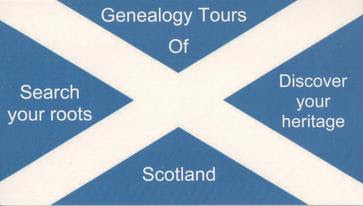The University of Strathclyde’s Genealogical Studies Programme by Distance Learning
The online Genealogical Studies programme represents a major advance in the process of academic certification of Genealogy and related studies. This programme was the first in the field to place the various genealogical disciplines within a rigorous academic framework while carrying credit at a postgraduate level from a UK university. The Postgraduate Certificate, Postgraduate Diploma and MSc are awarded at SCQF Level 11 (this is the Scottish master’s degree level). The Programme is now in its 10th year and has over 325 alumni located across the world.
What are the aims, objectives and course content of the programme?
We feel that all genealogists and researchers in archives must acquire a common body of knowledge and a standard of practice in order to work effectively. Irrespective of the particular environment the student will be entering (for example, as a professional genealogist, to work at archives or libraries or for personal interest), the principles and practices of genealogical and archival research must be fully understood in order to be effectively applied, and common standards adhered to (e.g. levels of “proof”, recording and reporting, citations and referencing).
Thus the programme provides a thorough grounding in the theory and practice of genealogical research. Our main focus is on students gaining expertise in searching, recording and presenting results.
The Programme is broken into 3 steps which together form the total MSc degree:
· The Postgraduate Certificate step deals primarily with English and Scottish records with an introduction to Irish records. The Certificate also provides a firm grounding in genealogical practice, genetic genealogy, heraldry and palaeography (the study of handwriting). The Certificate is where most students begin. Direct entry to PG Diploma is possible but requires the student to hold an equivalent of our PG Certificate.
· The Postgraduate Diploma step extends the geographical focus and adds American, Canadian, Australian, New Zealand, British Empire, Jewish, European and more advanced Irish sources. A series of written etudes on such topics as a house history and a client study brings a more academic slant to the Diploma level which is capped by the submission of a 5,000 word research project.
· The part time MSc step requires student to complete a research dissertation (12,000-16,000 words) on a topic chosen by the student with input from tutors.
Programme Delivery
The Programme can be taken part or full time or in a modular version:
• PG Certificate is available part time over 1-year which requires around 20 hrs per week; this 1-year version starts in October. The modular version runs over 2 years and requires around 14 hours per week; modules can be started in October, January or April.
• PG Diploma is available part time over 1-year which requires around 20 hrs per week; this 1-year version starts in October. The modular version runs over 2 years and requires around 14 hours per week; modules can be started in October and March.
• MSc level by dissertation is part time over 1-year and hours vary depending on the student and research project. The part time MSc begins in October with the 12,000-16,000 word dissertation due in late June.
This means the part time programme takes 3-5 years to complete an MSc.
We also offer a full time MSc which combines the materials from the PG Certificate, Diploma and is capped by the dissertation of 12,000-16,000 words.
Learning and Teaching
• The programme is delivered entirely online on the University’s virtual learning environment.
• Teaching materials include written lectures and multimedia presentations along with discussion forums and chat sessions.
• Students are assigned a tutor who provides feedback and support.
• There are no exams; assessment is largely practical in nature with academic research projects on the PG Diploma and MSc levels.
Student IT requirements
You’ll need:
– Access to a reliable computer – PC or PC compatible from home with a good Internet connection. Students can use a Mac but we don’t provide support.
– The ability to run applications such as Adobe Connect, Adobe Reader and a Media Player
– Ability to subscribe to certain online databases (though we normally arrange some free access for PG Cert students).
– Willingness to use genealogical software; Family Tree Maker is the course standard.
Entry requirements
• For the part time courses, normally we require an undergraduate degree (the area/field does not matter) or similar evidence of study skills, however non-standard educational or professional qualifications will be considered. Training through work could very well qualify.
• Some experience in genealogical (or other relevant) research is required. We look for a range of sources used and a level of comfort with communicating results.
• For the fulltime MSc, an undergraduate degree in any field is required along with some experience in genealogical research. This version is quite intensive and we have found that students without the experience of degree level study are at a real disadvantage.
For more information on the Programme
· Visit our webpage at: http://www.strath.ac.uk/studywithus/centreforlifelonglearning/genealogy/where we have FAQs and course timetables.
· E-mail us at: scosh@strath.ac.uk.
Other aspects of the Genealogical Studies Programme
Bannockburn Genetic Genealogy Research Project
Genetic genealogy is becoming more and more important as a tool for genealogical research and the Bannockburn Genetic Genealogy Project aims to show the power of genetic genealogy by revealing living descendants of combatants in the Battle of Bannockburn whose 700th anniversary was marked in 2014. Having identified several male line descendants of combatants using documentary sources, we invited them to take a DNA test, and then attempted to find another individual who closely matched each testee. If successful, this would show that the second individual was descended from the same combatant, despite having no supporting documentary evidence.
The Project was successful in this regard and you can view the results to date at: http://www.strathgenealogy.org.uk/projects/bannockburn-genetic-genealogy-project/



No comments:
Post a Comment